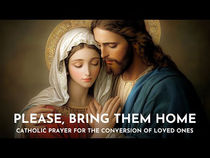The Catholic Defender: Blessed Adolph Kolping
- Dec 10, 2025
- 4 min read
Deepertruth with special permission and aid with Franiciscan Media, a great team for the Lord

(8 December 1813 — 4 December 1865) Blessed Adolph Kolping was a German Catholic priest and the founder of the Kolping Association. He led the movement for providing and promoting social support for workers in industrialized cities while also working to promote the dignities of workers in accordance with the social magisterium of the faith.
Adolph Kolping was a priest and before all a social reformer. With the foundation of workers' unions, he laid the foundation for the Kolping Society, today present and active in about 60 countries. The Kolping families are the local unions of this Catholic network - in South Tyrol there are about 16 of them.
The rise of the factory system in 19th-century Germany brought many single men into cities where they faced new challenges to their faith. Father Adolph Kolping began a ministry to them, hoping that they would not be lost to the Catholic faith, as was happening to workers elsewhere in industrialized Europe.
"The first thing that a person finds in life and the last to which he holds out his hand, and the most precious that he possess, even if he does not realize it, is family life."
Kolping grew up as the son of a shepherd. At the age of 18 he went to Cologne as a shoemaker's assistant. He was shocked by the living conditions of most people living there, which influenced his decision to become a priest. At age 23 he attended the Dreikönigsgymnasium and afterwards studied theology in Munich, Bonn and Cologne. On April 10, 1845 he was ordained a priest in Cologne's Minoritenkirche.
"Let's show Christian living in ever more practical ways and the present will be better and the future brighter."

Born in the village of Kerpen, Adolph became a shoemaker at an early age because of his family’s economic situation. Ordained in 1845, he ministered to young workers in Cologne, establishing a choir, which by 1849 had grown into the Young Workmen’s Society. A branch of this began in St. Louis, Missouri, in 1856. Nine years later there were over 400 Gesellenvereine—workman’s societies—around the world. Today this group has over 450,000 members in 54 countries across the globe.
In 1847 he became the second president of the Catholic Association of Journeymen, which gave young journeymen religious and social support.
By 1865, over 400 local groups of the journeymen’s organization had been established and were functioning throughout Europe and in America.
"The needs of the times will teach you what to do."
More commonly called the Kolping Society, it emphasizes the sanctification of family life and the dignity of labor. Father Kolping worked to improve conditions for workers and greatly assisted those in need. He and St. John Bosco in Turin had similar interests in working with young men in big cities. He told his followers, “The needs of the times will teach you what to do.” Father Kolping once said, “The first thing that a person finds in life and the last to which he holds out his hand, and the most precious that he possesses, even if he does not realize it, is family life.”
In 1849 he returned to Cologne as vicar of the cathedral and helped establish Cologne's Association of Journeymen. He united the existing journeymen associations as the Rheinischer Gesellenbund in 1850. This fusion was the origin of today's international Kolpingwerk. Until his death he labored to spread the federation of journeymen associations. By the year of his death, 1865, there were more than four hundred journeymen associations worldwide.

Blessed Adolph Kolping and Blessed John Duns Scotus are buried in Cologne’s Minoritenkirche, originally served by the Conventual Franciscans. The Kolping Society’s international headquarters are located across from this church.
Kolping members journeyed to Rome from Europe, America, Africa, Asia, and Oceania, for Father Kolping’s beatification in 1991, the 100th anniversary of Pope Leo XIII’s revolutionary encyclical “Rerum Novarum”—“On the Social Order.” Father Kolping’s personal witness and apostolate helped prepare for that encyclical. His liturgical feast is celebrated on December 4.
He died on 4 December 1865 due to lung cancer; he had suffered from a severe joint inflammation in his right forearm that spring.
Pope John Paul II visited his tomb in November 1980 while visiting the nation. He said: ”We need models like Adolph Kolping in today’s Church"
"The human life cannot exist without joy, without fun, least of all during youth. Thus joy and fun deserve an essential place in community life."
“religion and work are the golden foundation of the people,”
The beatification for the priest commenced on 21 March 1934 and he was later titled as Venerable in 1989. His beatification was celebrated under Pope John Paul II on 27 October 1991 in Saint Peter's Square; his liturgical feast is not affixed to the date of his death as is the norm but rather on 6 December.




















Comments